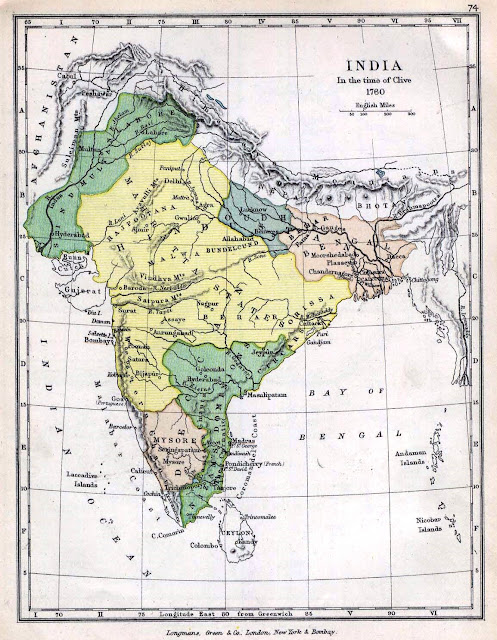The Economic History of the Marathas Part III - The Revenue Differences of EIC and the Marathas

Maratha Empire in 1759 (wikimedia commons) This is an overdue part perhaps for years on a stretch. However, it is time to write this part, precisely because it is important to understand why the Marathas eventually lost out to the British in maintaining their grip on their empire as a single federal entity and instead broke down into individual states under the East India Company (EIC) dominion that maintained tenuous relationship with the Maratha empire vestiges at best. The key to understanding precisely why the East India Company had the surplus revenue and not the Marathas, something that turned out to be a major influencing factor at the time in changing the power equation of the time. The story shall not necessarily be chronological, and I do not intend to tell dates, but I will tell the story as it emerges, and would request the three readers bold enough to read this blog post to bear with the story and figure out the dates and understand the chronology and convergence that toge
